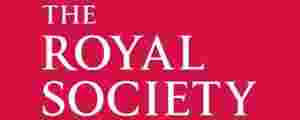 Menu
Menu
Published: 23 Jul 2020 1,545 views
This scheme is for outstanding scientists who are in the early stages of their research career and have the potential to become leaders in their field.
The scheme offers you the opportunity to:
This scheme is highly flexible to accommodate for part-time working, sabbaticals and secondments. There is also provision for maternity, paternity, adoptive or extended sick leave (PDF).
Our origins lie in a 1660 ‘invisible college’ of natural philosophers and physicians. Today we are the UK’s national science academy and a Fellowship of some 1,600 of the world’s most eminent scientists. The very first ‘learned society’ meeting on 28 November 1660 followed a lecture at Gresham College by Christopher Wren. Joined by other leading polymaths including Robert Boyle and John Wilkins, the group soon received royal approval, and from 1663 it would be known as 'The Royal Society of London for Improving Natural Knowledge'. The Royal Soc... continue reading

| Application Deadline | 03 Sep 2020 |
| Country to study | United Kingdom |
| Type | Fellowship |
| Sponsor | The Royal Society |
| Gender | Men and Women |
The scheme provides:
Read the scheme notes for full value of award information.
Research must be within the Royal Society’s remit of natural sciences, which includes but is not limited to biological research, chemistry, engineering, mathematics and physics. For a full list, please see the breakdown of subject groups and areas supported by the Royal Society.
Researchers addressing a direct biomedical research question should apply for a Sir Henry Dale Fellowship. Those applying from Ireland (ROI) are funded by Science Foundation Ireland and will need to read the eligibility requirements in the specific scheme notes.
You can apply for this scheme if you:
Applications should be submitted through the Society’s grant management system Flexi-Grant®.
Your application will go through the process detailed on the Making a grant application page overseen by the one of four research appointment panels based on your research area:
For more details, visit The Royal Society website.